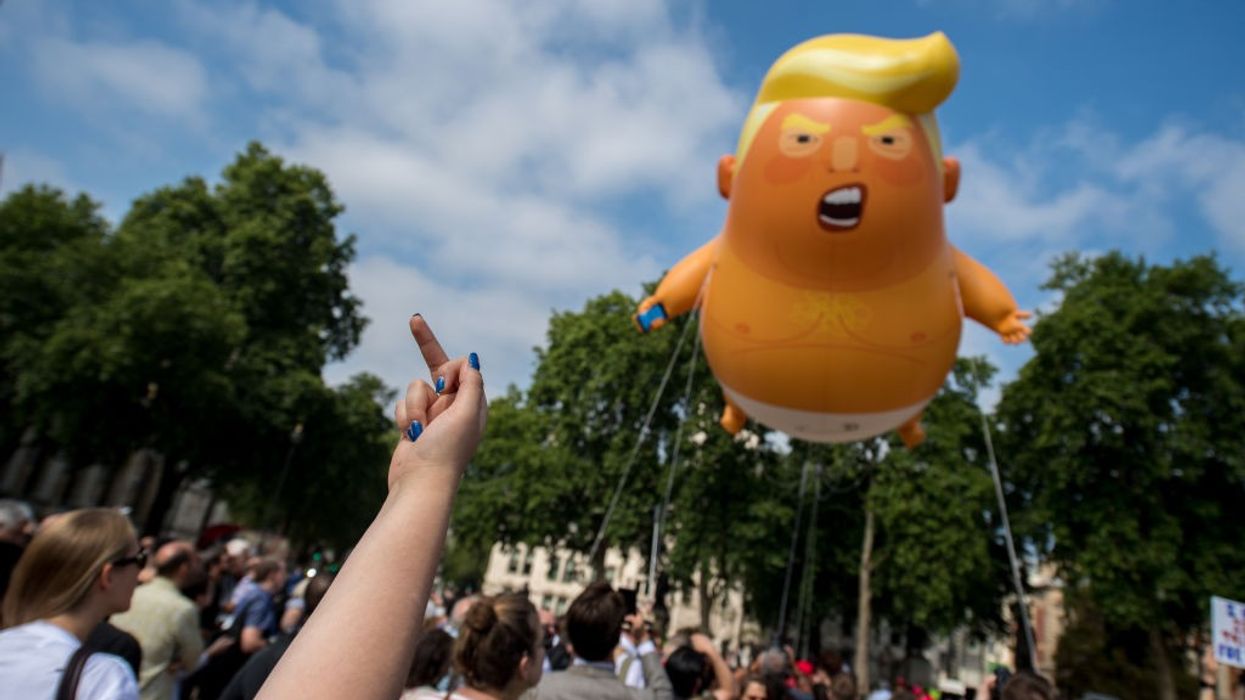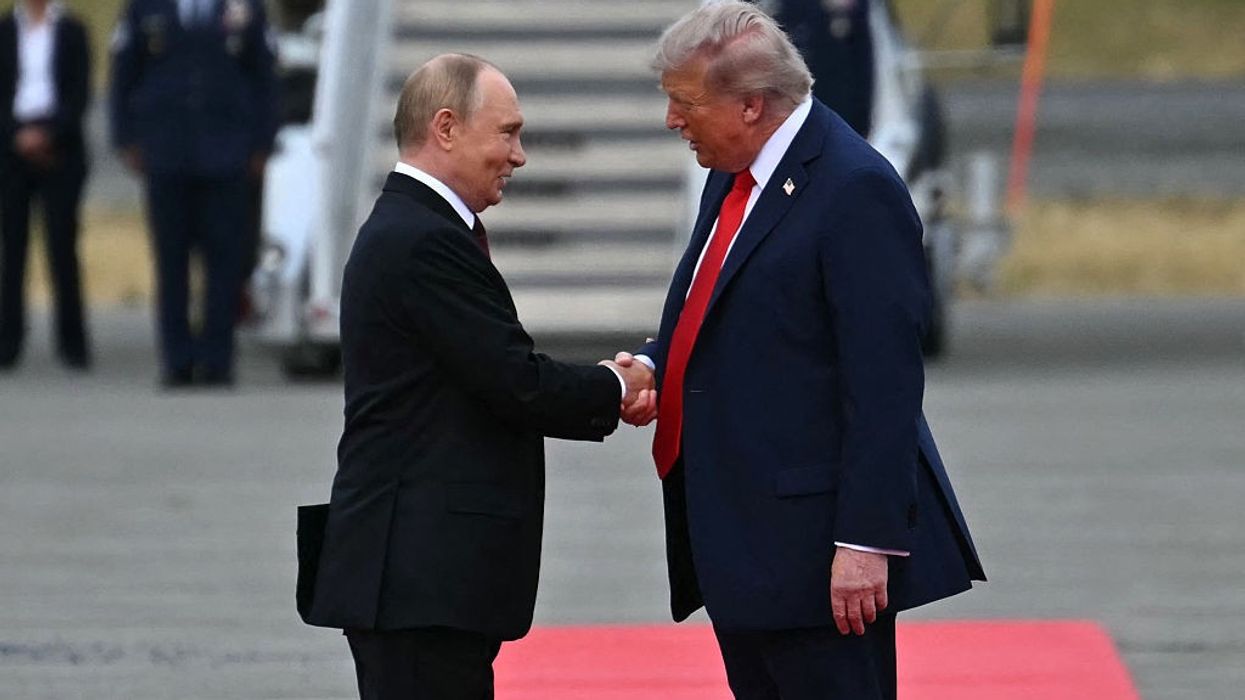Welcome to the psychological world of President Donald Trump. He kicks Jimmy Kimmel off the air because Kimmel makes fun of him. He brings charges against James Comey, Sen. Adam Schiff (D-Calif.), and the “Biden crime family” because they were critical of him and judged him. When California Gov. Gavin Newsom mocks him, his response is to proudly come up with the nickname, “Gavin Newscum.” He threatens General Mark Milley with “execution” and makes jokes about the violent attack on Rep. Nancy Pelosi’s (D-Calif.) husband. In response to Bruce Springsteen’s critiques from the stage in Manchester, UK, he attacked the Boss in a highly personal, peculiar, and bizarre way, posting this on Truth Social: “Springsteen is ‘dumb as a rock,’ and couldn’t see what was going on, or could he (which is even worse!)? This dried out 'prune' of a rocker (his skin is all atrophied!) ought to KEEP HIS MOUTH SHUT!” Trump’s actions and reactions to challenges or criticism of any kind come from an extremely personal, private, and insecure place, reminiscent of kids slinging insults in a schoolyard.
In other words, Trump turns everything political into something personal. His personal psychology is on display in his public actions all the time—it’s hiding in plain sight. And any guardrails or censor that should normally maintain a screen or at least some separation between his personal psychology and his public role have completely disintegrated, if it they were ever there to begin with. A leader unable to keep these two domains separate is invariably weakened and ineffective, and we’re all paying the price for this breakdown.
Trump’s interior life is a clown car of neurotic conflicts that have seized control of his executive functions and shape his every public statement and action.
A senior consultant in Saul Alinsky’s Industrial Areas Foundation used to teach progressive leaders that there is—and should be—a difference between public and private values, that in private life, relationships are ends in themselves while for public actors, relationships are, and should be, more instrumental and transactional. Self-sacrifice is normal in personal relationships, while self-interest guides public action. For political leaders, personal gratification should take a backseat to public service. Of course, there is often a blurring of these boundaries, but, in general, when these domains get too confused, the consequences are usually disastrous. We see in Donald Trump an extreme example of what happens when someone in public is unable to separate the pressures of his or her private psychology and public actions.
In Donald Trump’s world, the political is always personal. Barriers between the two worlds, the sort of censors and self-restraint that effective leaders are obligated to exercise in public life, have completely collapsed. You don’t need to be Freud to see how much his policies are suffused with his personal and private needs, defenses, and insecurities. He attacks Canada because its leaders had a “nasty” response to his suggestion that it become our 51st state. Ukrainian President Volodymyr Zelenskyy is “disrespectful,” and so Trump withholds aid. His ignorance about policy reflects the fact that he recklessly acts on private impulses and not thoughtful reflection. He lies compulsively and continually, and always in the service of bombastic claims of perfection and self-exoneration. He frees criminals and criminalizes dissent, not out of high-minded principles but out of base impulses involving his personal narcissistic needs and vulnerabilities—not public interests.
Obviously, public figures and leaders are human beings with personal psychologies that invariably influence their public political actions. Effective leaders, however, learn to subordinate or at least sublimate personal psychological conflicts in the interest of being politically strategic, negotiating compromises, and focusing in a laser-like way on those desirable political outcomes that serve a broader good. No one is saying that politicians leave their egos at the door, but, rather, that the best ones seek to restrain these egos in order to achieve their political goals.
Trump is the opposite. He acts (out) entirely on the basis of personal animus and internal conflicts and then, only retroactively, spins a tale that paints his words and actions as principled or visionary. He will act on a small-minded personal impulse like humiliating Zelenskyy (who was “disrespectful”) in the Oval Office, but then argue that what was clearly an idiosyncratic personal response was really part of his efforts to single-handedly solve the Ukraine-Russian war and insure world peace. He feels slighted by other world leaders and then reactively trash talks them in public, all the while implying that his derogatory language and claims are really part of his efforts to make America great again and to promote a high-minded “America First” agenda without a hint of awareness that the real psychic motivation behind his actions involves making him, on a purely personal level, “great” and “first.”
The nature of the psychological engine that drives Trump to so constantly leak his personal issues onto his public political postures, the real reasons he simply cannot keep the seamier sides of his psychology from flooding his actions as president, all stem from his core psychological makeup. Again, let’s be clear: Trump’s psychology is hiding in plain sight. This isn’t some long-distance psychiatric conjecture or diagnosis. Trump is driven to avoid or refute any situation, any moment, in which he might potentially feel or be seen as one-down, inadequate, inferior, or otherwise a failure. He lives in dire fear of such feelings and instinctively, automatically, and desperately has to go out of his way to communicate the opposite. We see it every day. We see it in Trump’s constant clownish boasting and self-aggrandizing arrogance. When the Murdoch-owned Wall Street Journal suggested business sentiment had soured in response to his tariffs, Trump lashed back, calling it "globalist," "antiquated," and "very bad for the USA"—before promising, absurdly, that "we will WIN on everything!!!”
Everyone is so used to Trump’s compulsive sense of grievance and defensive arrogance that it no longer seems to be as much the impairment that it actually is. No one blinks an eye when he makes remarks, barely concealed within his word salad, about “having the best words,” being “the best President for black people since Abraham Lincoln,” or knowing more about taxes, the military, climate change—well, pretty much everything—than the world’s experts.
My point here is that Trump has no choice, no freedom at all, to edit or censor remarks like these because the psychic threats they seek to mitigate—feelings of shame, inferiority, or failure—are so threatening to him that they leave him no room at all to be cautious, modest, or to seek common ground. While all politicians, like all people, bring their personal psychologies into their public work lives, Trump’s interior life is a clown car of neurotic conflicts that have seized control of his executive functions and shape his every public statement and action.
This is exactly why Trump can’t tolerate Newsom’s mocking tweets. They hit him exactly where it hurts the most, namely, his ego, his narcissism, and his profound insecurities connected to feeling small, to being seen in any way as a loser. And this is the precise tone that those of us in the progressive opposition should take when we challenge the Trump regime in public.
There is nothing funny, nothing at all, about the systemic harm that Trump is inflicting on all of us. And our struggle to repair and reverse such harm involves gaining and wielding political power and not psychiatric explanation. But if progressives hope to counter Trump effectively, we must remember: We are not simply debating policy. We are confronting a man whose every political act is an attempt to soothe his private wounds. Exposing that truth is not a sideshow. It is part of the strategy.


